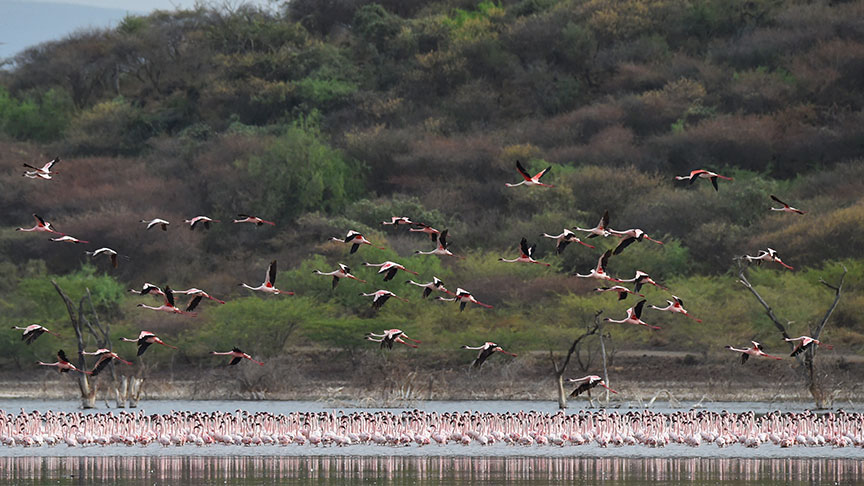Here at the DAAD Regional Office Nairobi we do not have to look very far to see the need for sustainability. Climate change is certainly making its presence felt in Kenya: rising water levels in Lake Baringo have already forced thousands of people to abandon their homes and destroyed infrastructure such as schools, hospitals and roads. Other parts of Kenya and East Africa are suffering from drought following several years in which the rains failed to arrive, transforming more and more farmland into desert. Climate change is also giving rise to plagues of locusts that devastated entire crops in 2020 and 2021. This, coupled with the Russian war of aggression in Ukraine and the lack of grain shipments, is threatening human and animal food security.
According to forecasts by the United Nations, populations of African cities will rise most sharply in the coming years, the number of inhabitants almost doubling by 2035. The fastest-growing countries include Tanzania, Congo, Uganda and Ethiopia, for which our Nairobi office has regional responsibility.
However, the research landscape in sub-Saharan Africa is also growing, and with it the potential to find responses to the various challenges in the form of sustainable innovations. The DAAD’s Centres of African Excellence programme aims to establish effective and permanent training and education structures at African universities. Kenya is home to two such Centres, whose areas of specialisation also reflect the network’s thematic spectrum: the Kenyan-German Centre of Excellence for Mining, Environmental Engineering and Resource Management, and the East and South African-German Centre of Excellence for Educational Research, Methodologies and Management.
The DAAD has maintained a regional office in Nairobi for nearly 50 years, offering funding programmes and events and engaging in policy dialogue with East Africa. The In-Country/In-Region Programme of scholarships for master’s and PhD courses at selected universities in sub-Saharan Africa is becoming increasingly popular and offers attractive capacity-building opportunities for students and host institutions. The Leadership for Africa programme gives migrants access to education in the form of a master’s degree at German universities. Furthermore, the African Climate and Environment Center – Future African Savannas (AFAS), which is partnered by the Ivorian Université Félix Houphouët-Boigny, the University of Nairobi and the University of Cologne, is all about sustainability in research. AFAS is part of the new DAAD-funded Global Centres network, though many smaller university projects in the SDG Partnerships with Africa programme funded by the DAAD are also focusing on sustainability. Despite a large number of projects, greater attention is to be paid in future to funding and to better understand the research landscape in Africa so that global issues and challenges can be tackled together. —


